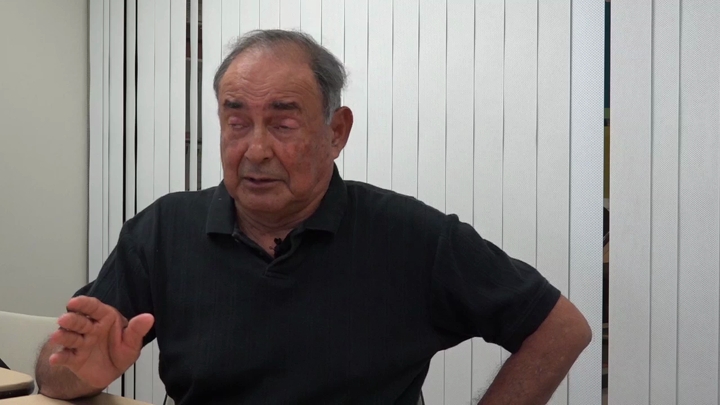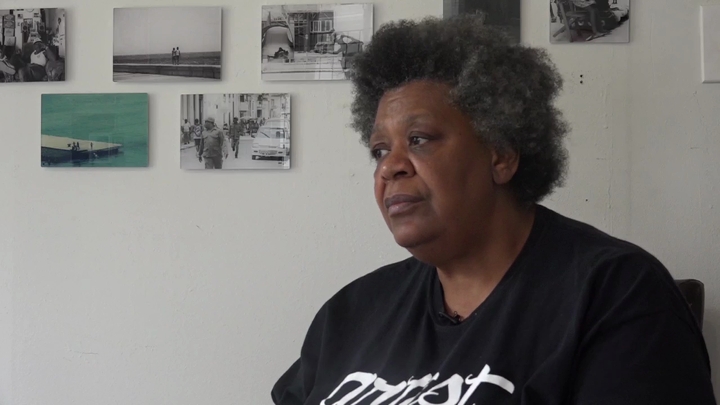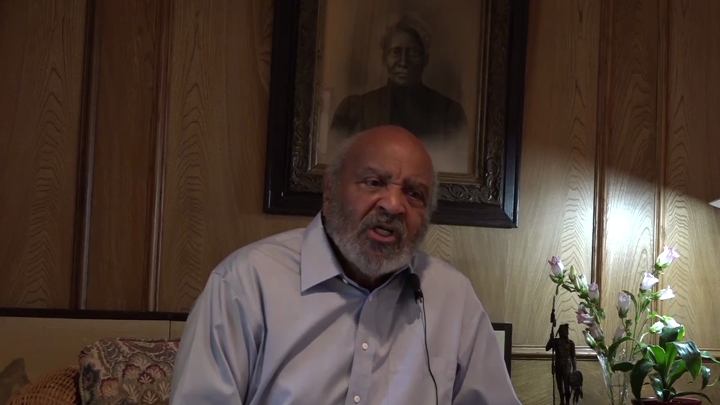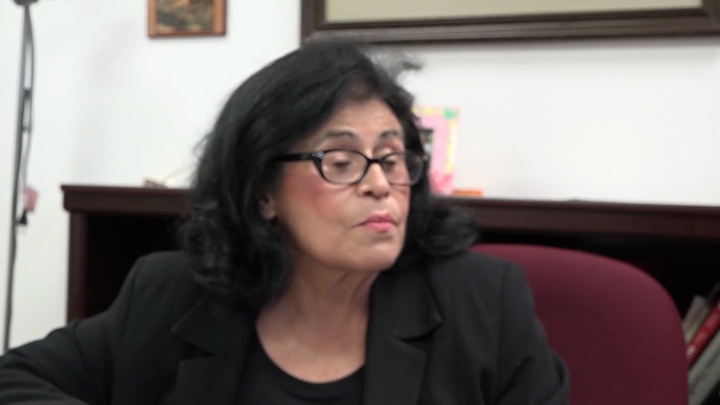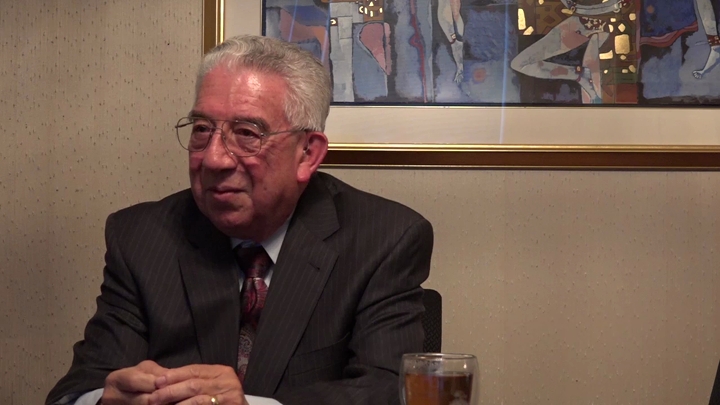Harrington / News Coverage - Class, Status, Race
sign up or sign in to add/edit transcript
Arionus: How did local papers cover the farm worker strikes, and other civil rights violations or police brutality? Was there a general slant to have the newspapers covered incidents? Harrington : Yeah. The newspapers were libertarian. Freedom newspapers. So you have that going on. So that means they are already anti-union. And then also, even though that’s out of orange county California, the chain at the time. Also you had people who worked in the valley, or part of the freedom newspapers, have local people so they had local bias. That was reflected. Now the TV stations and radio were much better. But of course the TV stations are always looking for controversial soundbites. And I was happy to oblige them. And the Spanish language radio stations generally were very good, they were sort of like Univision and Telemundo are right now. They have a different relationship and view with the Hispanic community. Now the newspapers in the beginning were very negative. Even when they’re writing news stories, they were very negative. But it began to change. I think one thing that happened where the police cases. Because in the police cases, of course, a number of the guys who were beat up where what you would expect, poor Hispanic guys. But the mistake that the police made was they also beat up some middle class kids. This unleashed the fury of their parents and gave legitimacy to what we were saying about all the cases. You could see that begin to change. By the time I left the valley after 10 years, it changed, not dramatically. In fact, they wrote a piece on me and my career and that sort of thing. But they would never have done that before. And now that it has shifted to Hispanic, you would not call it ownership, but all of the staff, it is very different. Now they have invited me to be on their board of riders or something like that. It would’ve never had happened. So that has been a big change. But of course newspapers these days are much less important to a Community then they were 25 to 30 years ago. They were part of the primary source of news. You only had a few TV stations right three for each of the networks. And then you had the newspapers. Arionus: Can you expand on what you meant by when the police started to beat up middle class kids? This matter a great deal more, why was it when they were beating up poor kids that there wasn’t yes I’ll cry? Harrington : I think what happens, I totally believe what happened, is that the middle class will tolerate a low level of violence against poor folks. For a couple of reasons, one is that they think that there would be more crime and more justification for the cops to do it. And that sometimes where you have to be a little heavy-handed and we will just let you do a little bit of this over there. Do you not bring it over here. They will tolerate that. I have seen that everywhere. Even here in Austin. You stop somebody. A sheriff deputy on Mopac stopped and Anglo woman for a DWI all hell broke loose. For a practice that is very common on this side of town. Oh man, one of the worst cases I ever lost involve this kid who was shot in the back by the Austin police. These were kids that were out in the gully building, they had a fire and I guess they were drinking beer. High school students. They had a pellet gun and they were shooting a can or something. This was remote somewhere outside of the town. But someone calls the cops, and the cops of course do their swat team thing, so they swoop in on the kids. Totally freak out the kids. The kids start running and this kid the cop shoots him in the back and kills him. Because he said it look like he was going to turn around and shooting with the gun. We had a jury trial and it was all white as I recall. Maybe one minority person. And the woman who ended up being what we now call the presiding juror, worked at a hospice. And Anglo woman. And I thought wow, this is going to be good because she is going to sympathize with different people. I asked her, I said “what’s the story.” She said well he should not have been out after curfew. It is like, you get killed because you’re out after curfew. It is a middle-class value. The kid asked for it, I mean it’s unfortunate, but you have to understand the concepts. This kid basically caused the problem. If that had been her son it would be a whole different story.
| Interview | Interview with Jim Harrington |
| Subjects | Work › Labor Unions |
| Police and Law Enforcement › Police Brutality | |
| Media | |
| Media › Spanish-Language Radio | |
| Media › Supportive Journalists and Editors | |
| Direct Action › Strikes | |
| Media › Hostile Journalists and Editors | |
| Class and Status | |
| Class and Status › Classism | |
| Police and Law Enforcement › Border Patrol | |
| Tags | sign up or sign in to add/edit tags |
| Interview date | 2016-06-13 |
| Interview source | CRBB Summer 2016 |
| Interviewees | Harrington, Jim |
| Locations | South Texas |
| Austin, TX | |
| Duration | 00:07:10 |
| Citation | "News Coverage - Class, Status, Race ," from Jim Harrington oral history interview with , June 13, 2016, Austin, Civil Rights in Black and Brown Interview Database, https://crbb.tcu.edu/clips/5502/news-coverage-class-status-race, accessed February 26, 2026 |


